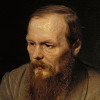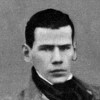“ Power is the relation of a given person to other individuals, in which the more this person expresses opinions, predictions, and justifications of the collective action that is performed, the less is his participation in that action. ”
Leo Tolstoy, War and Peace (1869). copy citation
| Author | Leo Tolstoy |
|---|---|
| Source | War and Peace |
| Topic | justification action |
| Date | 1869 |
| Language | English |
| Reference | |
| Note | Translated by Louise and Aylmer Maude |
| Weblink | http://www.gutenberg.org/files/2600/2600-h/2600-h.htm |
Context
“The incontestable proof of this deduction is that, however many commands were issued, the event does not take place unless there are other causes for it, but as soon as an event occurs—be it what it may—then out of all the continually expressed wishes of different people some will always be found which by their meaning and their time of utterance are related as commands to the events.
Arriving at this conclusion we can reply directly and positively to these two essential questions of history:
(1) What is power?
(2) What force produces the movement of the nations?
(1) Power is the relation of a given person to other individuals, in which the more this person expresses opinions, predictions, and justifications of the collective action that is performed, the less is his participation in that action.
(2) The movement of nations is caused not by power, nor by intellectual activity, nor even by a combination of the two as historians have supposed, but by the activity of all the people who participate in the events, and who always combine in such a way that those taking the largest direct share in the event take on themselves the least responsibility and vice versa.”
source


